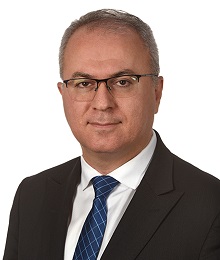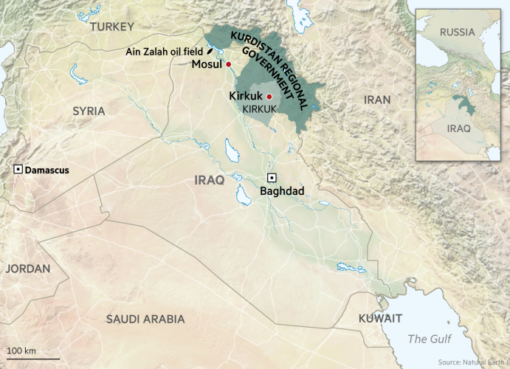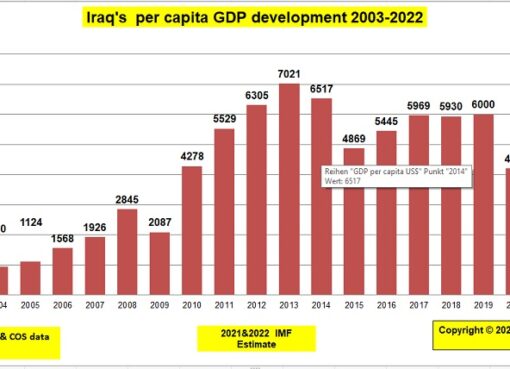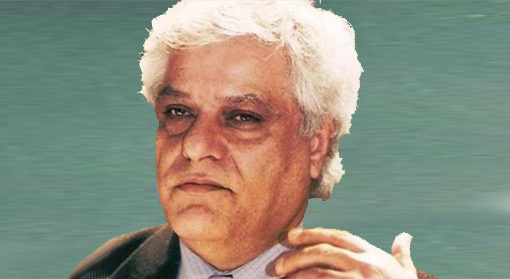Iraqi Prime Minister Mohammed Shia al-Sudani met last week with U.S. President Joe Biden at the White House as part of a weeklong visit aimed at strengthening bilateral relations. The visit occurred amid several historic anniversaries and dangerous developments in the Middle East. April marks the 21st anniversary of the toppling of Saddam Hussein. Since 2003, the U.S.-Iraq relationship has witnessed many ups and downs. Even as tensions persist, particularly in relation to the U.S. troop presence in the country, al-Sudani’s visit — which featured the largest delegation Iraqis have brought to Washington — demonstrates Iraqi will to start a new chapter in the strategic partnership that goes beyond security.
Expectations for al-Sudani’s visit were tempered even before he arrived in Washington given the impact of the Gaza war and Iraqi armed groups’ attacks on U.S. troops in Iraq, Syria and Jordan, one of which killed three U.S. service members and triggered a U.S. retaliatory response that killed leaders of these armed groups.
Still, al-Sudani came to Washington with cabinet members, senior advisors, members of parliament, businessmen and media analysts. He traveled to Texas and Michigan to meet with U.S. companies and the Iraqi diaspora, encouraging their participation in building Iraq and advancing relations with the United States. During the visit, the U.S. and Iraq convened the Higher Coordinating Committee of the 2008 Strategic Framework Agreement, a key framework for the bilateral relationship.
The symbolism of this visit — from the timing to the itinerary to the size of the delegation — demonstrates Baghdad’s desire to bring more focus on economic, educational and people-to-people domains. During al-Sudani’s visit, U.S. officials reaffirmed their commitment to a 360-degree, comprehensive relationship.
Security Confrontation and Cooperation
Al-Sudani is under domestic and Iranian pressure to end or significantly reduce the presence of U.S. troops and the Global Coalition to Defeat ISIS. This pressure predates him, and he is looking to manage it in a way that does not distract from his political and economic agenda.
Iraq and the United States in August 2023 established the Higher Military Commission (HMC) to assess the ISIS threat, the operational environment and capabilities of the Iraqi security forces. The aim of the HMC is to agree on a transition from the mission of the anti-ISIS coalition to bilateral security relations between Iraq and the United States and other countries of the coalition. The HMC will produce a technical assessment that could be politically leveraged to retain or draw down the foreign troop presence. This is one part of the broader effort to transition to more normal bilateral relations.
Even if ties evolve to a more normal bilateral relationship not primarily focused on the security realm, armed groups could still choose to attack U.S. interests in Iraq. It is plausible that armed groups are working to reduce the multilateral presence in Iraq — including ending U.N. missions — as a way to more easily apply pressure on the U.S. and other international actors and reduce external presence that undermines their interests. In his public remarks when meeting al-Sudani, Biden affirmed U.S. commitment to protecting U.S. personnel and partners, including Iraq.
Economy, Energy Independence and the Environment
The Iraqi economy and the financial sector have also become key domains of U.S.-Iraq tension, especially after Iran’s efforts to circumvent U.S. sanctions through Iraq. Iraqis call their country the economic lung of Iran. The U.S. treasury has been pressuring Iraq’s central bank to expand an electronic platform across the country’s banking system to help prevent the smuggling of the U.S. dollar to Iran or other destinations. Al-Sudani has leveraged that pressure to make reforms to the banking sector. Iraq signed over a dozen MoUs with U.S. companies such as General Electric, KBR Honeywell and others. Modernizing the banking and financial sector is vital for implementing these MoUs and the development of the private sector overall.
Iraq relies on energy imports from Iran, particularly natural gas for electricity and gasoline for vehicles. Indeed, Iraq loses over $3 billion a year through flared gas that is burnt during oil production and spends a similar amount importing gasoline. Achieving energy independence would reduce Iraq’s dependence on Iran and save Iraq more than $7 billion a year, which the country direly needs to finance its development. Capturing the flaring gas is also critical for protecting the health of Iraqis and the environment. Responding to U.S. pressure, Iraq has brought in international companies to support capturing and utilizing the flared gas and Baghdad projects it will cease needing imports by the end of this year. Iraq has also expressed interest in the peaceful use of nuclear energy.
From Genocide to Democracy
April also marks the 36th anniversary of Saddam’s genocidal Anfal Operations against the Kurds in 1988 and the 10-year anniversary of ISIS capturing one third of Iraqi territory and committing genocide against the Yazidis and other Iraqi communities comes in a few months. More than two and a half decades apart, these genocides raised global alarm and showed that the mindset of mass killings lived on.
Al-Sudani’s delegation included representatives of the Kurdistan Regional Government (KRG) and his advisor for Yazidi affairs, positive indicators of his attempt to govern inclusively. Throughout his meetings, the prime minister reiterated that he seeks to resolve disputes between the federal Iraqi government and the KRG including over their respective authorities over oil and gas revenue. He said these disputes and barriers in the relationship are institutional and legal, not political, and pledged to continue finding ways to make progress. Sunni, Kurdish and ethnic and religious minority leaders believe that al-Sudani is genuine, even as other political actors continue to obstruct more meaningful and strategic progress such as the federal council law and national oil and gas law.
Over the past two decades, there has been a multi-front Iraqi struggle for the future of their country. In 2019, Iraqi youth expressed their aspirations for a better life and a country free of Iranian influence through a peaceful protest movement. In 2021, key political Shia, Sunni and Kurdish forces capitalized on early elections that the protest movement, supported by Grand Ayatollah Ali Al-Sistani, ushered in to assert Iraqi agency over the country’s direction. The U.S., the international community and many Iraqis were excited over these developments. However, they were thwarted by competing efforts from Iran-backed groups among others, giving rise to the Coordination Framework — which itself also includes groups supported by Iran — that ultimately formed the al-Sudani government in alliance with Sunnis and Kurds.
Amid Regional Turmoil, Iraq Looks for Integration
Al-Sudani’s visit also comes amid regional turmoil that has expanded beyond the war in Gaza to Iraq, Lebanon, Syria, Jordan, Yemen and the Red Sea. On April 14, Iran launched over 300 armed drones and missiles at Israel. Most if not all, crossed Iraq’s airspace, highlighting vulnerabilities to Iraq’s security and sovereignty that the country still needs significant progress on. Iran and Turkey have struck deep inside the Kurdistan Region of Iraq using drones and missiles while Iraq was unable to detect or respond due to lack of needed air-defense capabilities. On April 21, armed groups in Iraq attacked U.S. troops in Syria, one day after al-Sudani’s return.
At every opportunity, the prime minister has sought to demonstrate that he is serious about responding to the people’s needs, strengthening the Iraqi state and sovereignty, and pursing shared interest as common ground in foreign policy, acknowledging the balancing act Iraq must undertake between Iran as a neighbor and the United States as a strategic partner.
Many believe Al-Sudani represents the Iraqi desire for a capable and responsive Iraqi state, for not repeating the violent conflicts of the past and for the country to become a constructive actor on regional and global stages. He has earned the respect of many Iraqis, foreign leaders and Iraq watchers as someone who is genuine and can lead the country forward. He has championed the Development Road — a plan to build a transportation network connecting Asia and Europe via Gulf-Iraq-Turkey — to tie domestic, regional and global economic interests together to spur jobs, investment and economic growth.
Why the U.S. Should Care About Iraq
Iraq’s challenges reflect a number of key U.S. national security interests: efforts at democratic consolidation, tapping the nexus between climate and energy, regional and global competition, and violent extremism. The United States has invested in establishing a democratic system in Iraq. Its Iraqi partners are asking that Washington not abandon it. Iraqis have embraced democracy, and while it has been backsliding at the institutional level, the Iraqi people — especially youth who represent the country’s “renewable energy” — still carry the promise of evolving into an Iraqi version of “we the people.”
Al-Sudani emerged from Iraq’s nascent democratic process and has the opportunity to advance it. For Iraqis, it resonates that he has not lived outside Iraq and built his credentials working through post-2003 Iraq as governor, then minister, member of parliament and now prime minister.
Iraq is projected to be among the five countries hardest hit by the impact of climate change, threatening the water and food security of over 43 million Iraqis, projected to reach 80 million by 2050. With assistance from international partners, the Iraqi government and civil society have started acting on mitigation and adaptation, but they still need technology and know-how from the United States. As water scarcity grows, Iraq’s government needs a comprehensive strategy and action aligned with the realities of climate and environmental change. Such adaptation is critical for the country’s stability and economic development.
China is a rising economic player in Iraq. In 2021, Iraq was the primary recipient of China’s Belt and Road Initiative. Beijing is a major importer of Iraq’s oil and engaged deeply in the full chain of oil production to transformation into services through the China-Iraq Framework, which was previously called oil-for-construction. During his visit to Saudi Arabia in 2022, President Biden said, “We will not walk away and leave a vacuum to be filled by China, Russia, or Iran. And we’ll seek to build on this moment with active, principled American leadership.”
The threat of ISIS is significantly diminished in Iraq, in major part due to the U.S.-Iraq partnership. The HMC will provide answers for where that threat stands and what Iraq needs to address remaining threats. However, it is clear that returning and reintegrating the remaining nearly 20,000 Iraqis in Al-Hol Camp in northeast Syria back into their communities are imperative for humanitarian reasons as well as U.S. and Iraqi national security interests.
Iraq is also important for global energy stability: it holds the fifth largest oil reserves and is one of OPEC’s three largest oil producers. Iraq aspires to be a player in the gas sector as well. The United States also prizes Iraq’s pivotal role in regional stability.
Moving Forward
An objective look at al-Sudani’s visit and its outcomes demonstrates progress in a number of areas: reaffirming bilateral interest in strengthening and expanding relations as the region slides toward expanding conflict; articulating Iraqi need and interest in U.S. companies, technology and education; and an Iraqi will to rise above hardships of the past and the moment while balancing many competing interests and actors.
Clearly, there are many areas of mutual interests for Iraq and the United States to energize and build bilateral relations further. Several of al-Sudani’s predecessors also sought similar objectives, each under rather unique circumstances, making some progress but not gaining sufficient momentum. The change of times, the Coordination Framework’s support for al-Sudani’s visit and his own follow-up may offer a higher chance for progress than previous times. The ball is in Iraq’s court to create the conditions that would make it attractive for U.S. companies to work and invest in Iraq safely. It would also require the U.S. to continue to show understanding that change in Iraq takes time and U.S. support remains critical. Improving governance, especially reducing corruption, and creating an inviting business climate are key.
Like Germany, Japan and Vietnam, Iraq could move beyond the history of war toward a future of strategic partnership with the United States that would work for both nations across various diplomatic, economic, security, technological and people-to-people interests.

Sarhang Hamasaeed is Director, Middle East Programs
Source: United State Institute for Peace,
April 25, 2024








Comment here